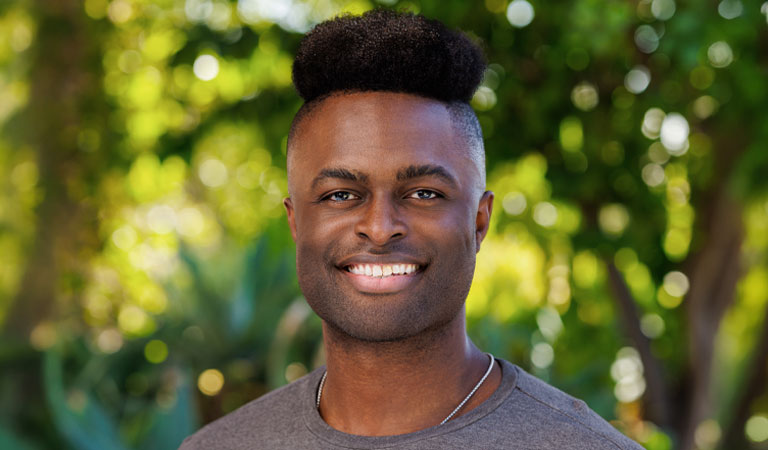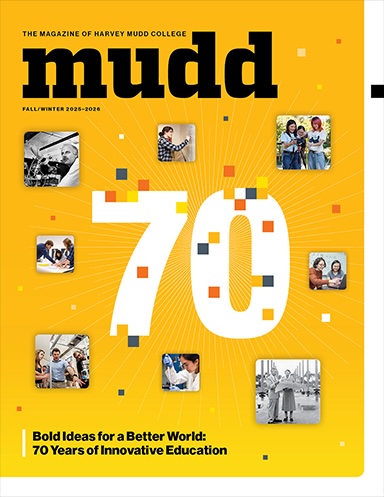Harvey Mudd Researchers Publish Papers and Receive Grant for Carbon Catalyst Research
June 23, 2025
Harvey Mudd College chemistry professor Maduka Ogba recently coauthored two papers with students and secured a $70,000 grant from the American Chemical Society Petroleum Research Fund, all centered on comprehensive research in green chemistry and catalyst design.
The first paper, “Effect of strain and π-acidity on the catalytic efficiency of carbones in carbodiimide hydroboration,” was published in Organic and Biomolecular Chemistry. This work explores how zero-valent carbon compounds, known as carbones, can be used as highly reactive metal-free catalysts. The team uncovered how these unique compounds reduce unsaturated molecules—like carbodiimides—into useful precursors for pharmaceuticals and agrochemicals, all through atom-economical processes.
A second paper, “Computations illuminate emerging reactivity of metal-free carbones,” appeared in Trends in Chemistry. It surveys the latest research on carbones and outlines their potential to revolutionize organocatalysis.
Both papers are co-authored by Ogba, with Max Schernikau ’27 as the first author.
“I am grateful to have had the opportunity to work toward these papers, and I’m excited to share my work at conferences this summer and during the academic year,” said Schernikau, who has an interest in organic chemistry and reaction mechanisms. “Research in this lab has opened my eyes to a whole new world of computational theoretical chemistry.”
In Ogba’s lab, Schernikau works on developing potential mechanisms for reactions and then generating molecules based on the mechanisms so the team can collect this data. “I analyze the data to extract important values and make figures that summarize my findings,” Schernikau said. He’s joined in Ogba’s lab by Aresema Ata ’28, Nora Nickolov ’28, Nata Velarde-Alvarez ’28 and Zaan Saeed ’28, who has been instrumental in introducing machine learning to enhance the researchers’ work.
Building on the momentum from the recent papers, Ogba received funding from ACS for the project titled “Computational Investigation of the Reactivity and Thermal Stability of Zerovalent Carbon Compounds (carbones) as Catalysts for CO₂ Reductive Functionalization.” This interdisciplinary project combines organic chemistry, catalysis, machine learning and data analytics to address the urgent need for carbon recycling. Students will explore how to transform excess CO₂ into high-value chemicals, offering a potential offset to the rising surplus of this greenhouse gas.
“Students collaborate, and they get to think about one chemical problem from many different areas,” said Ogba, who adds that he’s impressed with Harvey Mudd students and their willingness to learn and contribute to the research. “They’re eager to get their hands dirty and bring fresh ideas—from machine learning to experimental design—that are pushing the research in new directions.”
